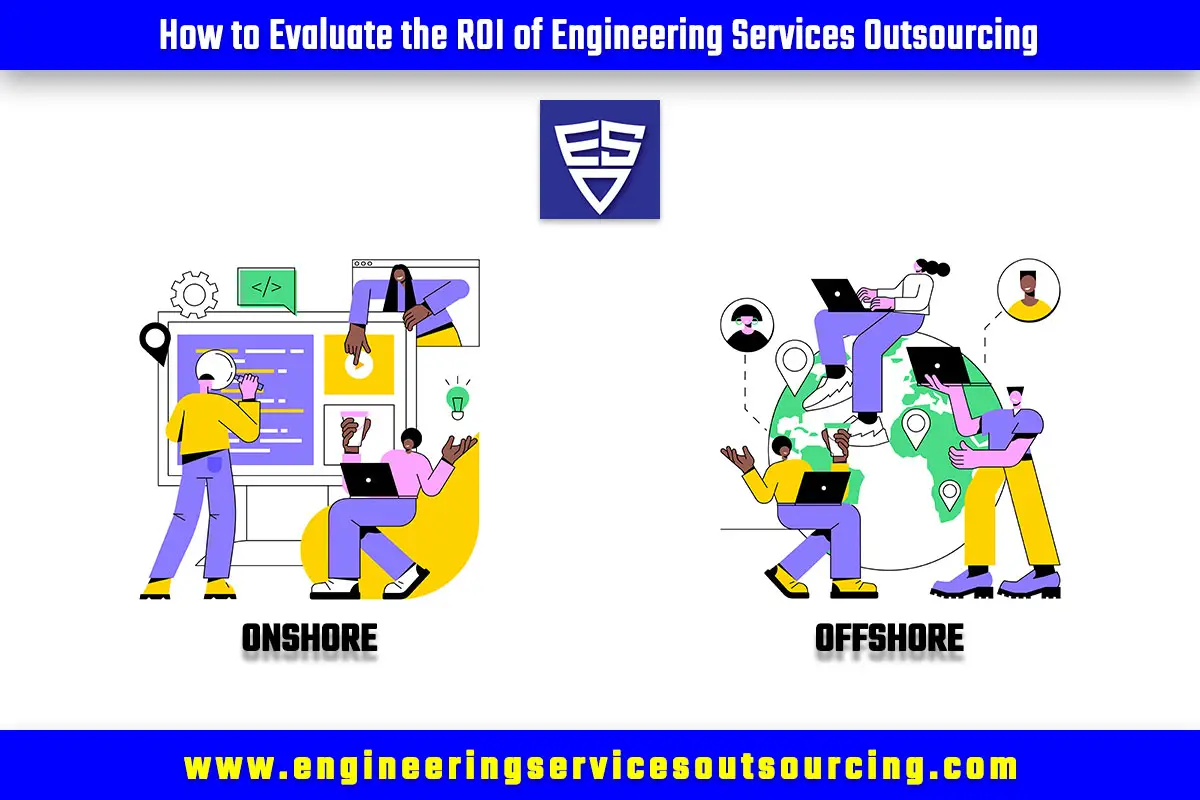
As businesses continue to look for ways to reduce costs and improve efficiency, engineering services outsourcing has become an increasingly popular option. One key decision that companies face when outsourcing their engineering services is whether to use onshore or offshore providers. This article explores the pros and cons of Onshore vs. Offshore Engineering Services Outsourcing.
Table of Contents
1) Onshore Engineering Services Outsourcing
Onshore engineering services outsourcing refers to hiring an engineering services provider that is located in the same country as the hiring company. There are several benefits to this approach:
1.1) Pros of Onshore Engineering Services Outsourcing
1.1.1) Cultural Similarities:
One of the biggest advantages of onshore outsourcing is that there are usually fewer cultural differences to overcome. This can help to improve communication and collaboration between the two teams.
1.1.2) Time Zone Compatibility:
When working with an onshore provider, there is usually little or no time difference, making it easier to schedule meetings and communicate in real-time.
1.1.3) Legal Compliance:
Onshore outsourcing generally comes with fewer legal and compliance issues than offshore outsourcing. Working with an onshore provider can help ensure that your project complies with local laws and regulations.
1.2) Cons of Onshore Engineering Services Outsourcing
1.2.1) Higher Cost:
Onshore outsourcing is typically more expensive than offshore outsourcing due to higher labor costs and overhead expenses.
1.2.2) Limited Availability:
Depending on your location, there may be a limited number of onshore engineering service providers to choose from.
1.2.3) Skills Shortages:
Certain skill sets may be harder to find among onshore providers, which could limit your ability to find the best talent for your project.
2) Offshore Engineering Services Outsourcing
Offshore engineering services outsourcing involves hiring a provider that is located in another country. There are also several advantages and disadvantages to this approach:
2.1) Pros of Offshore Engineering Services Outsourcing
2.1.1) Cost Savings:
One of the biggest advantages of offshore outsourcing is cost savings. In many cases, labor costs in other countries are significantly lower than in the hiring company’s country, making offshore outsourcing an attractive option for businesses looking to cut costs.
2.1.2) Access to a Larger Talent Pool:
Offshore outsourcing can provide access to a larger pool of skilled engineers, particularly in countries with well-established engineering education systems.
2.1.3) 24/7 Operations:
When working with offshore providers, it is possible to take advantage of time zone differences to create a 24/7 operation, which can lead to faster project completion times.
2.2) Cons of Offshore Engineering Services Outsourcing
2.2.1) Communication Challenges:
Communication can be more difficult when working with an offshore provider due to language barriers, cultural differences, and time zone differences.
2.2.2) Quality Control:
Ensuring quality control can be more challenging when working with an offshore provider, particularly if there are significant differences in working styles or processes.
2.2.3) Security Concerns:
There may be concerns around data security and intellectual property protection when working with an offshore provider.

Conclusion
Deciding whether to use onshore or offshore engineering services outsourcing ultimately comes down to a variety of factors, including cost, availability of skilled labor, and the nature of the project. While offshore outsourcing can be an attractive option for businesses looking to cut costs, it’s important to carefully consider the potential communication and quality control challenges that can arise. Onshore outsourcing may be a better option for companies looking for greater collaboration and fewer cultural differences. Ultimately, choosing the right engineering services provider requires a thorough understanding of your business needs, budget, and the specific challenges of your project.
Related Article:






